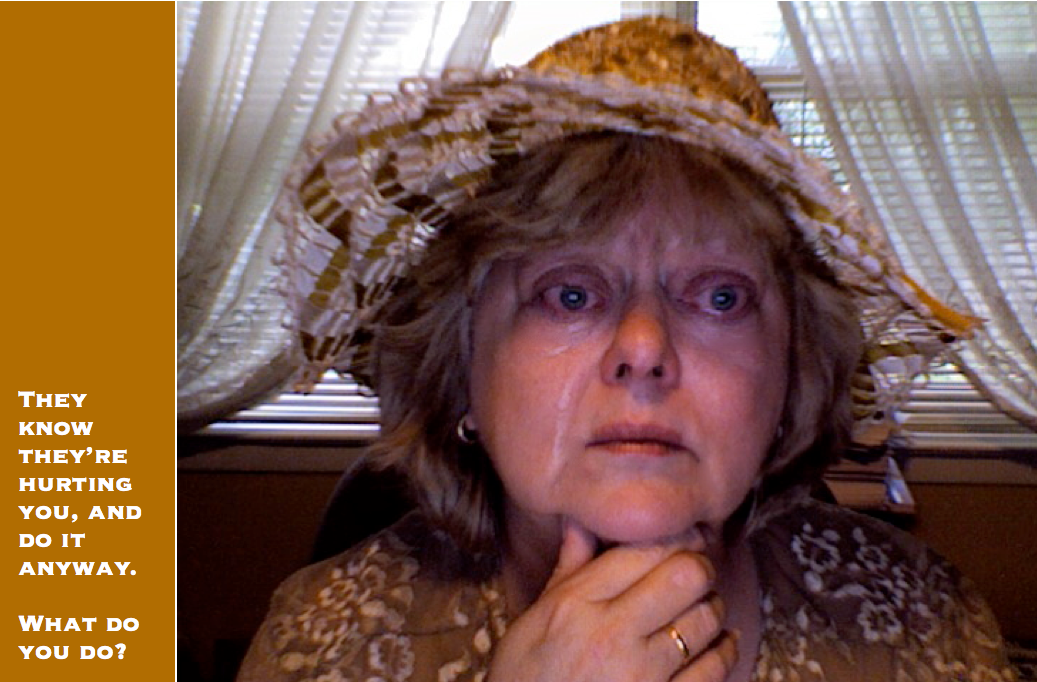WARNING: This is a no-edit zone…
“How do you get so much done?”
There’s a question some have asked others, and often.
I wish I could write that there’s a supernatural means responsible, or a set method that makes accomplishing much in little time. But the truth is it requires discipline.
Years ago, a friend and I were both aspiring writers. While she went on shopping trips and out to lunch with the girls and spent hours and/or days doing fun things, I abstained to write, and on more than one occasion, I was told I was obsessed.
I didn’t see it that way. I had a lot to learn and if I wanted to write well, then I had to apply myself to learning and to actually writing. A mentor once told me that I didn’t have the right to call myself an author until I’d written a million words. I saw merit in that, though at the time, the declaration admittedly stung. The merit was that any professional requires training. After all, a brain surgeon doesn’t wake up one morning, decide to be a brain surgeon, then declare himself/herself one. Education and training are required.
So I invested in writing and in intensive independent study and then in the formal education to earn the privilege. And I wrote. And wrote. And then wrote more and continue to invest and to write.
Temptation in this, like in everything else where the intent is to use what you do for good purpose, abounds. It’s a gorgeous day, and you’re stuck, backside to chair before the computer, writing.
You’d love to engage in a hobby. Those have a way of falling away when you write. It consumes. You’d like to go on that cruise you’ve been thinking about, or take that trip, or take that pottery class for the love of it.
And yet you know if you do those things then you won’t make the progress you’ve hoped to make. You know that you will fall short of your intended goals.
After twenty years, I can say that there is a fine line between discipline and obsession. And now I can say that anything that you place so much importance on that it has priority over your relationship with God is obsession.
But what if you are writing is for His glory? How then do you define where that line in the sand is? The line that on one side is discipline and on the other side is obsession?
That’s a bit tougher.
I have counseled writers who had fallen into a trap that on the surface seems good but is actually devastating to the human being in the writer. And that trap, I’ve no doubt is deliberately set by the insidious one who uses our intent for good against us at every opportunity.
First, I acknowledge that writing to sell isn’t simply a matter of writing. There’s always fifty things to be done. Whether it is research or marketing or appearances or lectures or blogging or edits or revisions or books to read for endorsements or critiques or contest judging or conferences or any of a hundred other writing-related things-to-do, one thing a professional learns early on is that the list of ancillary duties is endless. Another thing one learns early on is the value of a priority list. But for every item that gets ticked off on that list, it’s common to add one–or two.
So acceptance that time is a precious commodity and attempting to use it wisely is key. That requires discipline. Because some duties are more pleasant, more enjoyable, easier to get done, or because we get an urgent plea to help another, the temptation to add and add and add items onto that list is a certainty.
While we want to do all we can, we must also accept that we can only do so much. Many of us have challenges with that. We hate to refuse anyone needing/wanting help. A few tips on that:
1. No isn’t a judgment on the person asking or on the value of the task. No is a complete sentence. When we’ve maxed out, we’ve maxed out, and that’s the bottom-line truth of the matter. We have twenty-four hours in a day, and all of them cannot be scheduled. Things happen. Schedules have to retain some flexibility. But writers are creative and so are many others. We all need some time to just be.
2. Focusing our energies is a way to narrow our exposure and to achieve excellence in that specific area. Work to your strengths, yes, but study your weaknesses to broaden your horizons.
Be honest about your limitations. With yourself, with others. Once I was asked to do an anthology by an editor I adore and respect. But the subject matter held no interest to me and it wasn’t something I felt driven to write about. (It didn’t feed my purpose for writing, which means, it wasn’t a “healing” project.) Note that I didn’t say the project was without merit. It had merit. Just not merit consistent with the reasons I write. I refused the project, suggesting to the editor that she find another author who would be wholly invested in the project.
Now it doesn’t appear that took discipline, but it required an enormous amount of discipline. I was a relatively new writer, I needed the money and the exposure. The other authors were substantially ahead of me on the career ladder and that meant it was very tempting to say yes, though I knew I wasn’t right for that project.
It was a tough battle, but discipline won. The editor appreciated my candor, invited another author, the project was done and it was very successful. I was happy about that, which took discipline, too. 🙂 The point is, I was wrong for that project and though I could have done it and the temptation was great to do it, with every word I would have written I would have known I was wrong for that project and I was giving into temptation. That’s not something that makes one feel good about themselves or about what they’re doing.
My point is that discipline isn’t just about sitting down and writing, or doing whatever you do. Or about trying to do what you do well. Those things are part of it. But discipline’s roots go much deeper and its vines and leaves spread much broader. So broad that they encompass the whole of the person. The physical, emotional and spiritual aspects of the person.
Discipline is daring to say yes and to say no when it’s right for you and aligns with your purpose. It’s having your priorities straight and keeping them straight even when it would be so tempting to slide just a little.
Discipline is not separate from but a key element in obedience, in honor and in glory. It is living the tenets embraced to your best ability–not just when it’s easy, but when it’s really tough.
Discipline is one of the ways in which we thank God for His blessings. By utilizing the gifts given to us with care and forethought and discrimination. We value those blessings. We respect them and we don’t take them for granted.
So regardless of what you do, when you’re tempted to cut a corner or to take the easy road rather than the right one, or when you wake up and realize you have no life because you’ve let yourself get out of balance and stepped over that discipline/obsession line, take a step back, review and revise, remembering that first fruits are His, and the value of our gifts carry responsibilities to use them wisely. That often requires we make free will choices to exercise discipline.
In short, I guess one could conclude that discipline is a cornerstone on the path to wisdom.
Blessings,
Vicki
c2008, vicki hinze




